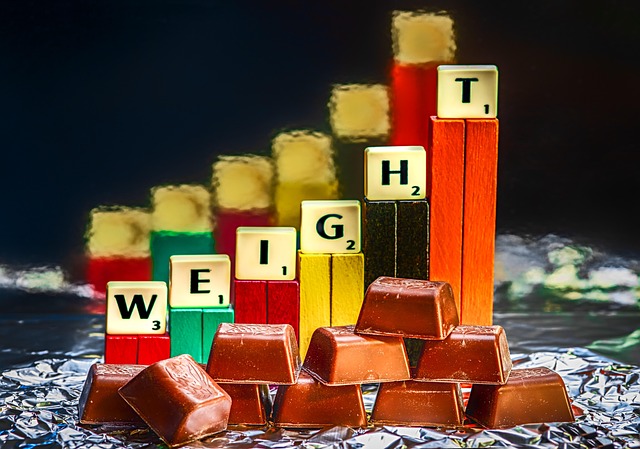When it comes to weight management, the science behind it is crucial for making informed choices about your diet and lifestyle. The process involves understanding the relationship between calories, metabolism, and energy balance. In this blog, we’ll break down these scientific concepts, how they affect your weight, and what you can do to maintain or achieve your ideal weight.
What is Weight Management?
Weight management isn’t just about looking a certain way; it’s about maintaining a healthy body that functions properly. It’s the process of controlling and regulating your weight by balancing energy intake (calories consumed through food and drink) with energy expenditure (calories burned through metabolism and physical activity).
Understanding how calories, metabolism, and energy balance work together is essential for achieving a healthy weight. Whether you’re trying to lose weight, maintain your current weight, or gain weight in a healthy way, these factors play a significant role in your overall success.
What Are Calories?
At its simplest, a calorie is a unit of energy. It’s how we measure the energy in food, drink, and the energy we burn through activity. Our bodies need calories to function—whether it’s for basic bodily functions like breathing and digesting food or for more active tasks like running or lifting weights.
-
Calories in Food When you eat, you’re consuming energy in the form of calories. Different foods provide different amounts of calories depending on their nutritional content (e.g., protein, fat, carbohydrates).
-
Calories Burned Your body burns calories every day through basic functions (like your heart beating and your body maintaining temperature) and through physical activity (like walking, exercising, or even fidgeting).
For weight management, the key is balancing the number of calories you consume with the number of calories you burn.
What is Metabolism?
Metabolism refers to the process by which your body converts the food you eat into energy. It’s a complex series of chemical reactions that happen in your body, and it’s the driving force behind all bodily functions. The term “metabolism” often gets associated with how fast or slow your body burns calories, but it’s more than that.
-
Basal Metabolic Rate (BMR) This is the number of calories your body needs to perform basic functions like breathing, circulating blood, and maintaining body temperature. Your BMR accounts for about 60–75% of the calories you burn every day.
-
Thermic Effect of Food (TEF) When you eat, your body burns calories to digest and absorb food. This process contributes to energy expenditure, although it’s only a small percentage (about 10% of your daily calories).
-
Physical Activity Any movement, whether it’s structured exercise or daily activities (like walking, cleaning, or even standing), adds to the total number of calories you burn.
Your metabolic rate can be influenced by various factors like age, gender, body composition, and even genetics. As people age, metabolism tends to slow down, which means they might require fewer calories to maintain their weight.
What is Energy Balance?
Energy balance refers to the relationship between the calories you consume (energy in) and the calories you expend (energy out). To maintain or change your weight, achieving the right balance is crucial.
-
Positive Energy Balance (Weight Gain) If you consume more calories than your body burns, the excess energy is stored as fat, leading to weight gain.
-
Negative Energy Balance (Weight Loss) If you consume fewer calories than your body needs, your body will use stored fat for energy, leading to weight loss.
-
Neutral Energy Balance (Weight Maintenance) If the calories you consume are equal to the calories you burn, your weight remains stable.
How Does Energy Balance Affect Your Weight?
The concept of energy balance is central to understanding weight management. When you consume more calories than you burn, your body stores the excess as fat, leading to weight gain. Conversely, when you burn more calories than you consume, your body taps into fat stores for energy, resulting in weight loss.
Maintaining a healthy weight involves finding a balance that works for you. For weight loss, this means consuming fewer calories than you burn (a calorie deficit). For weight maintenance, it means consuming roughly the same amount of calories as you burn.
The Role of Diet in Weight Management
Your diet directly impacts your calories in. While it’s essential to focus on eating a variety of nutrient-dense foods, the total number of calories consumed will determine whether you’re in a calorie deficit, surplus, or balance.
-
High-Quality Foods Choose whole, unprocessed foods rich in nutrients. Vegetables, fruits, lean proteins, whole grains, and healthy fats should be your go-to choices.
-
Portion Control Eating larger portions can quickly add up in calories. Be mindful of portion sizes and avoid eating out of habit or emotion.
-
Mindful Eating Paying attention to your body’s hunger and fullness cues can help you avoid overeating, making it easier to maintain an energy balance.
The Role of Exercise in Weight Management
While diet is crucial, physical activity plays a big role in weight management by increasing the calories you burn. Both cardiovascular exercise (like running, cycling, or swimming) and strength training (like weightlifting or bodyweight exercises) can boost metabolism, build muscle, and help you maintain a healthy weight.
-
Cardio Activities like walking, jogging, and cycling are effective at burning calories.
-
Strength Training Building lean muscle mass increases your BMR, meaning you’ll burn more calories even at rest.
-
Daily Movement Simple activities like walking, climbing stairs, and even standing more often can significantly impact your total calorie expenditure.
What Affects Metabolism?
-
Age As you get older, muscle mass tends to decrease, which can lower metabolism.
-
Body Composition More muscle mass generally means a higher metabolic rate because muscle tissue requires more energy to maintain than fat tissue.
-
Genetics Some people naturally have a faster metabolism due to their genetic makeup.
-
Hormones Hormones like thyroid hormones, insulin, and cortisol can influence your metabolism and fat storage.
How to Achieve a Healthy Weight
Weight management is a balancing act of consuming the right number of calories, maintaining an active lifestyle, and understanding how your body’s metabolism works.
-
Focus on a nutrient-dense diet that supports your activity levels.
-
Be mindful of portion sizes to avoid excess calorie consumption.
-
Incorporate both cardio and strength training to increase calorie expenditure and muscle mass.
It’s important to remember that there’s no one-size-fits-all approach. Your ideal weight and energy balance will depend on a variety of factors, and it’s important to adopt habits that work best for your unique needs and goals.
By understanding the science of weight management, you can make informed choices that help you maintain a healthy weight for life.


